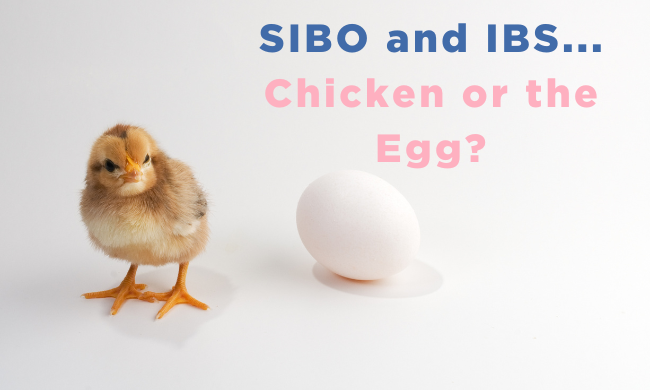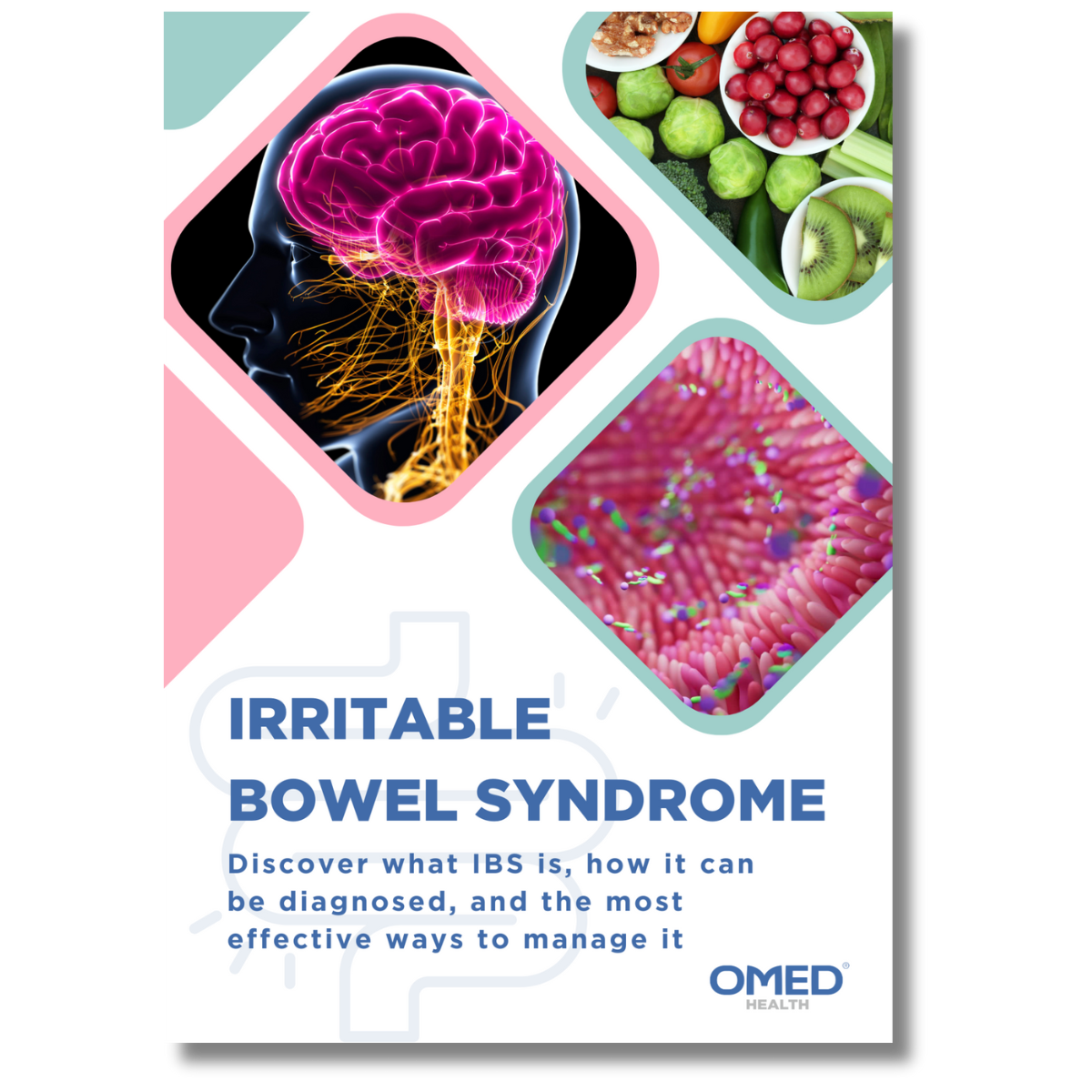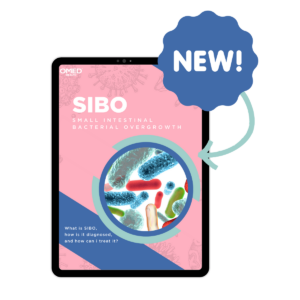SIBO and IBS are both gastrointestinal conditions. Irritable bowel syndrome (IBS) symptoms can include bloating, abdominal discomfort, or pain accompanied by changes in bowel patterns. It is the most common functional gut disorder that can severely impair a sufferer’s quality of life (1). Small intestinal bacterial overgrowth (SIBO) is caused by an excessive number of bacteria in the small intestine (particularly those that usually live in the large intestine), with the common SIBO symptoms being abdominal discomfort, bloating, chronic diarrhea and difficulties in absorbing nutrients.
People with SIBO may also experience unintentional weight loss and nutritional deficiencies. It is a common misconception that this disease primarily affects only a limited number of people as evidence suggests that it may be more common than you think (2). This might be due to improved diagnostic tests that have improved our ability to diagnose SIBO, such as hydrogen-methane breath tests, but this might also be because the link between SIBO and IBS is becoming more well-understood.
The Connection Between SIBO and IBS.
SIBO can trigger a wide spectrum of symptoms, spanning from mild gastrointestinal upset to nutrient malabsorption. This occurs through its impact on various aspects of gut functions, including immune activation, carbohydrate digestion, and more (3). Given that many of these issues are also seen in the development of IBS, it makes sense to consider a possible link between the two conditions. Studies have indicated that patients with IBS tend to have higher bacterial counts in the upper small intestine compared to healthy individuals, which is the main cause of SIBO.
Additionally, IBS patients are more likely to exhibit abnormal results in hydrogen or methane breath tests (4). Several studies have looked at the frequency of SIBO in patients with IBS compared to healthy patients using hydrogen breath tests. Between 4% and 78% of IBS patients have been found also to have SIBO. Although this frequency is varied, SIBO was found to be more common among IBS patients than healthy patients, suggesting a significant relationship between the two diseases (4).
What comes first, the chicken or the egg? Well, this is the same question that comes into play here. Can IBS be caused by SIBO? What remains uncertain is whether SIBO acts as a cause or a consequence of IBS, or perhaps both! In other words, SIBO may induce IBS symptoms in some individuals, while in others, IBS may predispose them to SIBO development. Therefore, it is easy to see a reciprocal relationship where one condition worsens the other, creating a vicious cycle and causing chronic gut health problems.
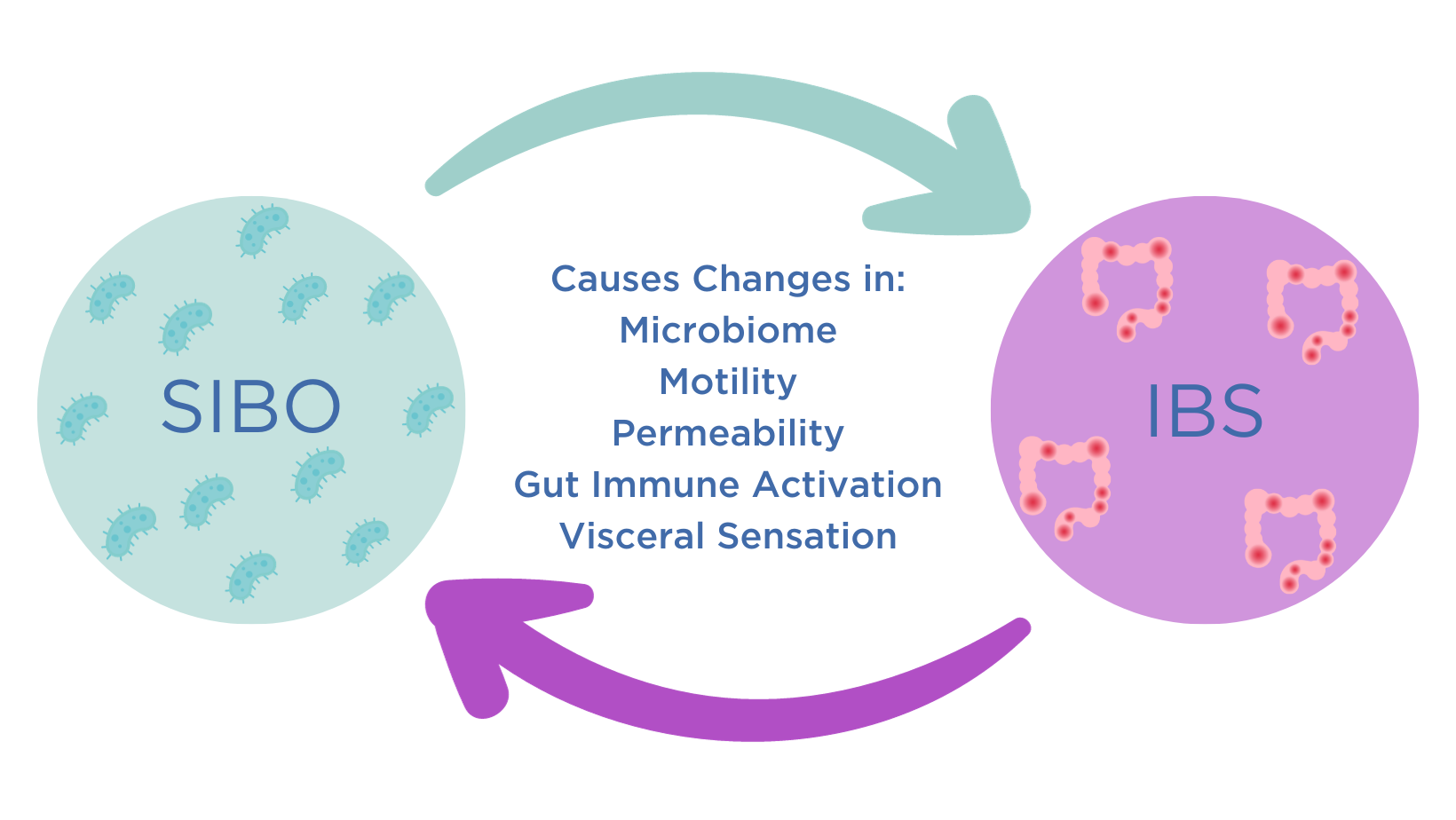
I Have IBS, Could I Have SIBO too?
Several key factors are associated with the development of SIBO in IBS patients:
- What subtype of IBS do you have? Patients characterized by bloating and diarrhea as the main symptoms are at an increased risk of developing SIBO (5).
- Demographic. Being female and of older age can further elevate the risk of SIBO and IBS (5).
- Medication. The use of certain medications such as proton pump inhibitors (PPIs) by some patients to treat acid reflux and indigestion, may contribute to the occurrence of SIBO (5).
- Dysbiosis. Imbalances in the gut microbiome (known as dysbiosis) can be caused by a high carbohydrate diet, stress, and other gastrointestinal infections. Dysbiosis may play a role in the development of symptoms in a subset of patients. This is because dysbiosis can cause an overgrowth of bacteria in the small intestine, leading to SIBO (6).
- Bacterial Fermentation. SIBO leads to bacterial fermentation in the gut, producing gases like hydrogen and methane, which result in symptoms such as abdominal pain and bloating (6). Pain and bloating are two key symptoms of IBS, but what if it’s SIBO causing this discomfort?
- Sulfate-Reducing Bacteria. Overgrowth of sulfate-reducing bacteria is seen in patients and can impact gut sensitivity. Hydrogen sulfate produced by these bacteria can play a role in the pathogenesis of SIBO and therefore might serve as a potential biomarker for diagnosing SIBO and IBS patients (6).
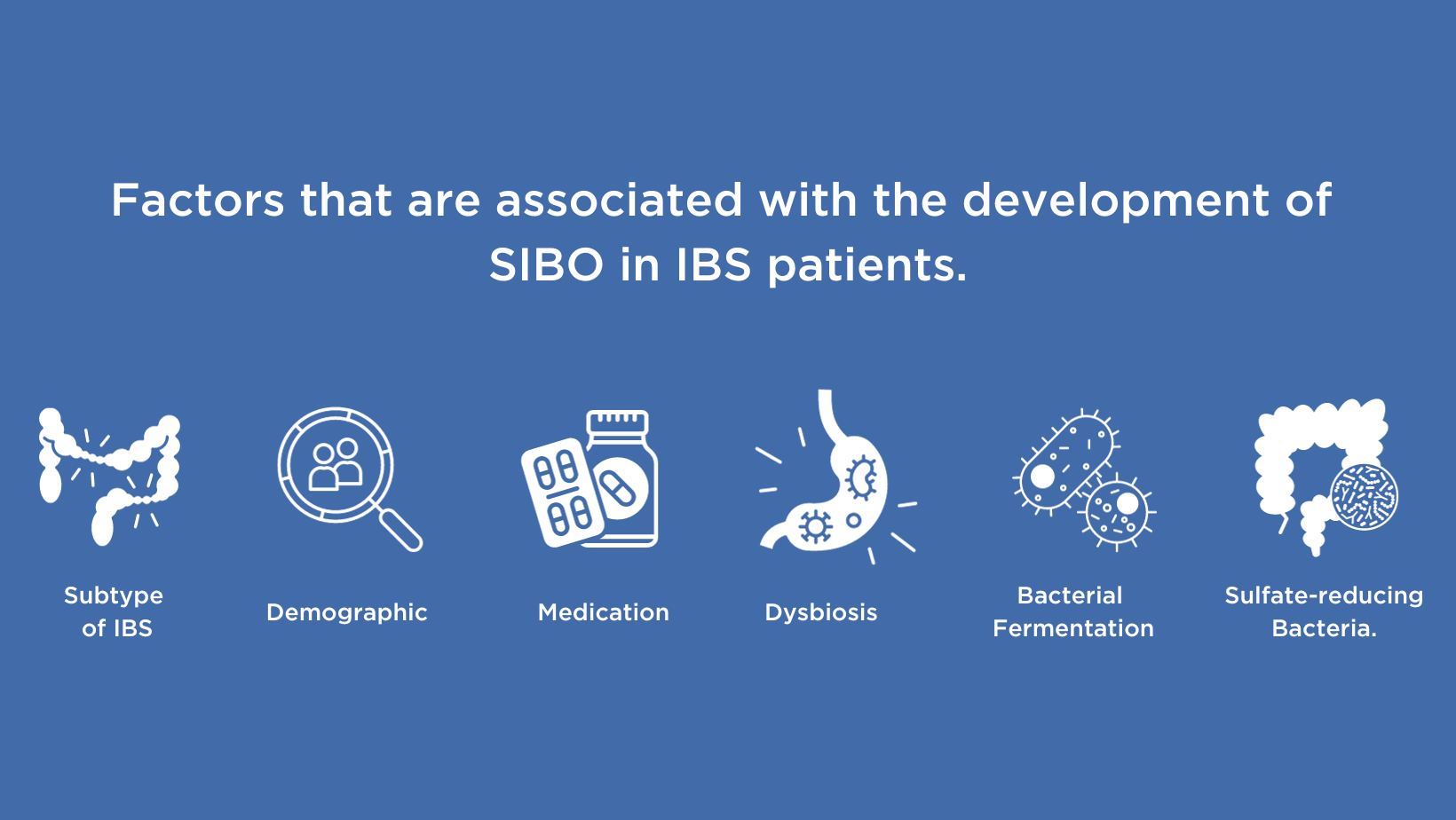
These factors highlight that there is a strong connection between the two diseases. If patients with IBS can identify whether they are also suffering from SIBO (and vice versa), it could help in determining the root cause of their symptoms, meaning the appropriate treatment can be given. Therefore, a standardized method such as a breath test could be used to diagnose SIBO for patients with IBS could help these patients gain control over their gut health to better manage their symptoms.
How Breath Testing and OMED Health can Help.
We recognize the significance of empowering individuals to gain insight into their gut health, allowing them to regain control over their digestive health. To address this, we have developed the OMED Health Breath Analyzer and App, set to launch soon. This at-home breath testing device and paired app is an innovative solution that enables the monitoring of hydrogen and methane levels in your breath alongside the tracking of relevant lifestyle factors that may contribute to your discomfort.
By interpreting this data with the expertise of our network of experts, patients can access personalized treatment plans and ongoing monitoring, enabling them to make well-informed decisions about their gut health. Secure your priority access by joining the waitlist today. Additionally, we offer Hydrogen Methane Breath Test kits (HMBTs) for the diagnosis of SIBO. These tests can be used to help determine whether you have SIBO and if your IBS symptoms are worsened by the presence.
References.
- Saha L. Irritable bowel syndrome: Pathogenesis, diagnosis, treatment, and evidence-based medicine. World J Gastroenterol WJG. 2014 Jun 6;20(22):6759. DOI: 10.3748/wjg.v20.i22.6759
- Dukowicz AC, Lacy BE, Levine GM. Small Intestinal Bacterial Overgrowth. Gastroenterol Hepatol. 2007 Feb;3(2):112–22. PMID: 21960820
- Menees S, Chey W. The gut microbiome and irritable bowel syndrome. F1000Research. 2018 Jul 9;7:F1000 Faculty Rev-1029. DOI: 10.12688/f1000research.14592.1
- Ghoshal UC, Shukla R, Ghoshal U. Small Intestinal Bacterial Overgrowth and Irritable Bowel Syndrome: A Bridge between Functional Organic Dichotomy. Gut Liver. 2017 Mar;11(2):196–208. DOI: 10.5009/gnl16126
- Reddymasu SC, Sostarich S, McCallum RW. Small intestinal bacterial overgrowth in irritable bowel syndrome: are there any predictors? BMC Gastroenterol. 2010 Feb 22;10:23. DOI: 10.1186/1471-230X-10-23
- Weinstock LB, Klutke CG, Lin HC. Small intestinal bacterial overgrowth in patients with interstitial cystitis and gastrointestinal symptoms. Dig Dis Sci. 2008 May;53(5):1246–51. DOI: 10.1007/s10620-007-0022-z
